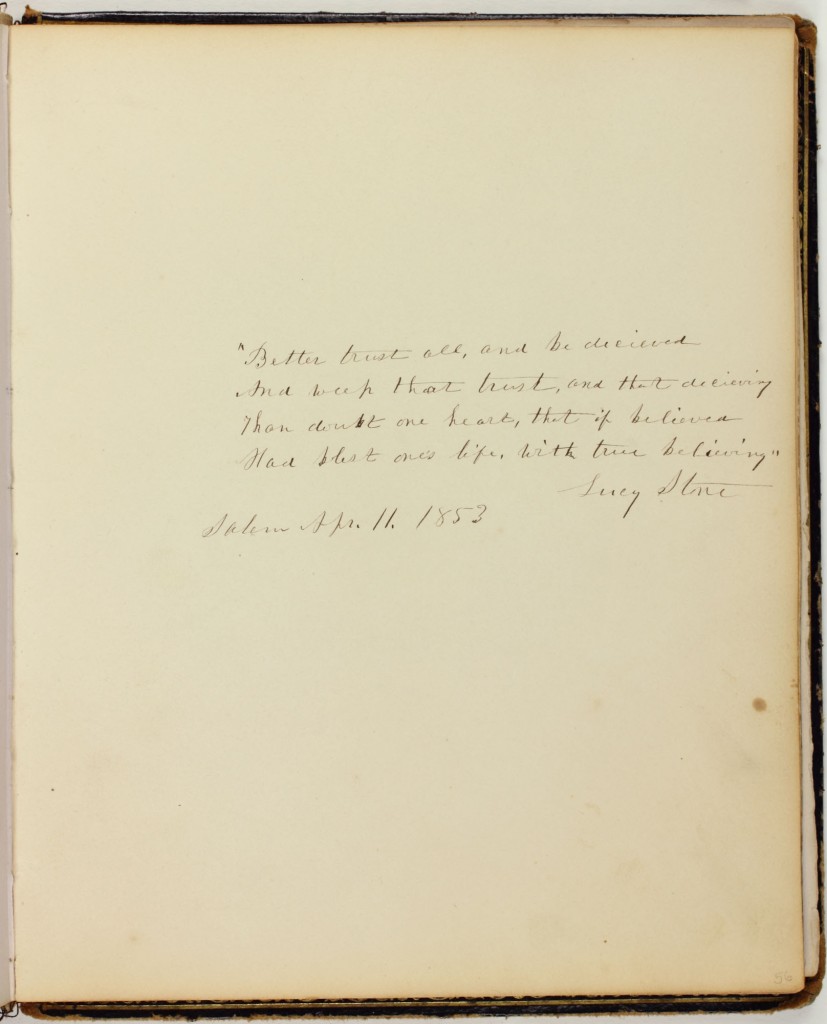Preface (3)
6|7|8|9|10|11-12|13|14|15|16|17|18|19|20|21|22|23|24|25|26|28|30|31|32|33
34|35|36|39|42|44|47|49|51|52|53|54|55|56|57|59|62| 63|64-68|70|73|75
 “Better trust all, and be decieved (sic)
“Better trust all, and be decieved (sic)
And weep that trust, and that decieving (sic)
Than doubt one heart, that if believed
Had blest ones life, with true believing”
Lucy Stone
Salem Apr. 11. 1853
Lucy Stone (1818-1893), an abolitionist and advocate for women’s rights, supplies an entry transcribed from the first stanza of the poem “Faith” authored by British-born American actress and writer Frances Anne Kemble (1809-1893). The central message of the poem that a trusting, optimistic view of the world, even though perceived as naïve, is better than a suspicious or pessimistic worldview mirrors Stone’s political activism. The poem is a testament to Stone’s political optimism and her religious faith. The idea of remaining faithful despite ‘trials and tribulations’ was an important concept in early American Protestantism.
The poem also documents inter-textual practices in the Cassey album related to practices of authorship. By placing the poem in quotations, one acknowledges they are not the author of the work despite the lack of an author citation.
Page 56: Selected from Frances Anne Kemble, “Faith” in Dinah Marie Mulock Craik, The Ogilvies (New York: Harper & Brothers, 1850).
